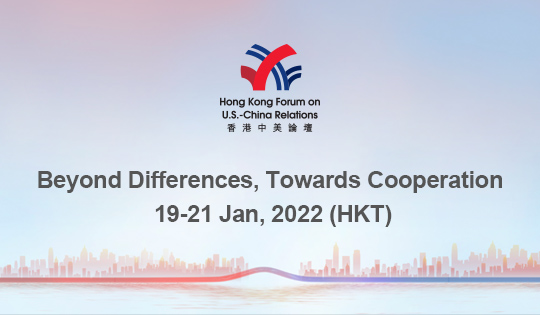The steady deterioration of China-U.S. relations has caused alarm and concern in many quarters, leading to discussions of the Thucydides trap and even claims that the two countries are destined for war.
While relations will likely get worse before there’s any chance of getting better, war is not and should not be an option for Beijing or Washington, by any stretch of the imagination, because both are armed to the teeth with nuclear weapons sufficient to destroy each other multiple times. And any conventional armed conflict between them would quickly escalate out of control and lead to the irreversible prospect of Armageddon, threatening the Chinese people, the Americans and mankind as a whole.
The “destined for war” speculation, based on the Thucydides trap, is in itself the biggest trap for China and the United States because it conflates selective pre-atomic history with the post-atomic realities of the world of today. The speculation has reinforced Washington’s stance of maximum confrontation and manhandling of Beijing, and has lent academic credence to Washington’s distorted belief that maximum pressure will cause China to back down and enshrine the U.S. as the ultimate winner in an eventual war.
Ironically, there is only one logical conclusion to be drawn from all the geopolitical confusion created by Washington’s maximum confrontation policy: Rather than destined for war, China and America are actually destined for peace. And this inevitable peace is the true and real mega trend of relations.
Therefore, the real choice for Beijing and Washington is simple — either “destined for war,” leading to Armageddon; or “inevitable peace,” leading to a live-and-let-live scenario. The destined for war proposition is a false destiny for China and America, because neither the Chinese people nor the Americans, nor mankind as a whole want Armageddon. So any force anywhere in the world — political, military, academic or otherwise —pushing for war should be opposed and condemned. And any force anywhere in the world — political, military, academic or otherwise — pushing for peace should be welcomed and promoted. Philosophically, the real choice for China and the U.S. is actually simple: We both want the inevitable peace. We both reject a destiny of war.
The U.S. declaration of a national emergency against Huawei, including the extradition of Madam Meng Wanzhou from Canada to the United States, is a case in point. Under the destined for war scenario, the U.S. manhandling of Huawei and Meng would have made sense based on the belief that China and America would eventually be engulfed in war against each other, leading to Armageddon. And anything from China would look suspicious as a potential Chinese instrument of war.
In the 1980s, Deng Xiaoping teased U.S. leaders about their not declaring American wheat to be exported to China as a “strategic good,” but rather banned like embargoed military equipment — since American wheat could be eaten by the Chinese PLA soldiers, as well as anyone else. Under the inevitable peace scenario, U.S. manhandling of Huawei and Meng would amount to shooting itself in the foot because Huawei, like many other resources of Chinese origin, could be utilized to help create hundreds of thousands of jobs in America, speed up its transition to 5G and ensure that the American semiconductor industry lives and prospers.
As for Huawei, rather than collapsing under Washington’s maximum pressure while maintaining its leadership position in 5G, it is fast diversifying into automobiles, digital cities, cloud, fast-train communication and satellite 6G. As for the U.S. attempt to extradite Meng, the recent evidence released by a court in Vancouver clearly exposes the gaping holes and contradictions in the U.S. claim of banking fraud, which is a major pillar of the U.S. extradition request to Canada.
While the strategic value of Meng’s extradition to the U.S., if any, is fast evaporating, Canada’s claim of its rule-of-law traditions may boomerang to its detriment because of the seemingly impossible task of filling the gaping hole in the fraud claim raised by the U.S. The United States and Canada would better serve themselves by finding a convenient way out of this embarrassing dilemma and allow Meng to go home and create the necessary conditions for the two Michaels to return to Canada.
Thus, the case of the extradition of Meng could be the last chapter of the destined for war scenario, and her release could be the first chapter of the inevitable peace between China and America, enabling Canada to crawl out from under the bus with dignity. Coming home for Meng will be cheered by 1.4 billion Chinese people, and coming home for the two Michaels will be cheered by the Canadians.
Let us abandon the heresy of destined for war thinking. Let us embrace the truth of inevitable peace. Let the kids come home. Let peace prevail. Let the clouds of war dissipate and evaporate.
